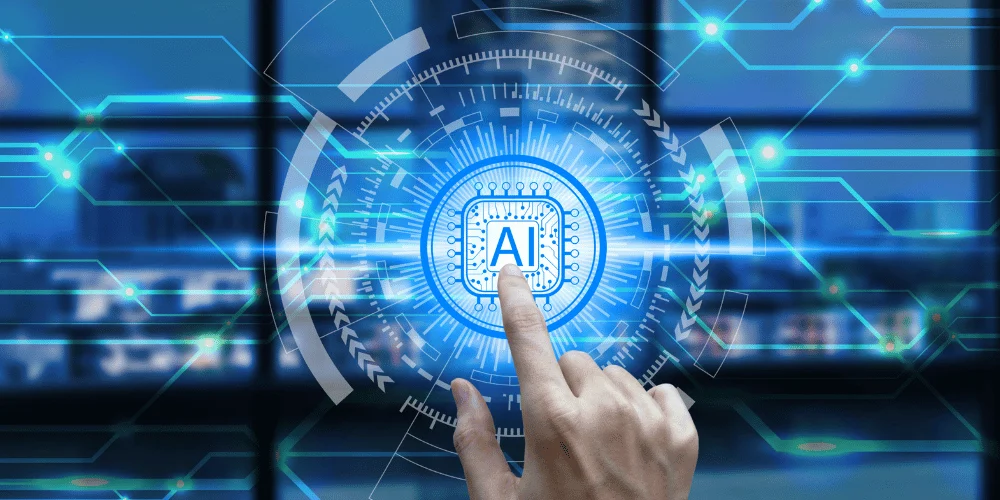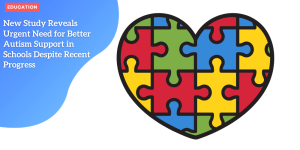The Importance of Becoming AI Literate: Preparing Australians for the Future Workforce
Anúncios
In an era where artificial intelligence (AI) is rapidly transforming workplaces, education, and daily life, becoming AI literate is emerging as one of the most critical skills for Australians.
The LinkedIn 2025 Skills on the Rise report has revealed that AI literacy is Australia’s most in-demand skill, reflecting a remarkable 240% increase in AI-related hires since 2016.
As AI reshapes industries and job roles, it is vital that students, workers, and communities understand what AI is, how it works, and how to harness it effectively.
This article explores why AI literacy matters, what it entails, and how Australians can build their understanding and practical skills to thrive in an AI-driven future.
Why AI Literacy Matters More Than Ever
Unlike previous technological revolutions that mostly automated physical tasks, AI now extends to cognitive functions—tasks traditionally reliant on human thinking such as problem-solving, decision-making, and communication.
This fundamental shift means that AI is no longer just a tool but a partner in work and learning.
According to research led by Macquarie Business School, understanding AI is essential not only for technical proficiency but also for managing changes in career trajectories and skill demands. Associate Professor Mauricio Marrone notes:
“Fear of AI is unproductive, but informed awareness is important. While some students worry about job displacement, others see AI as a catalyst for career advancement.”
Australian students and workers with realistic expectations and practical knowledge of AI are better equipped to adapt to shifting job markets and to leverage AI for personal and professional growth.
AI Is Already Part of Our Lives
AI technology is increasingly embedded in everyday life. For example:
-
🤖Many use AI-powered tools for writing assistance, data analysis, or creative projects.
-
🤖Voice assistants, recommendation algorithms on streaming services, and navigation apps all rely on AI.
-
🤖In education, AI can personalise learning experiences, adapt content to students’ needs, and provide rapid feedback.
Marrone himself utilises AI tools to create visualisations for complex concepts, summarise lengthy podcasts, and even suggest recipes based on available ingredients.
These examples demonstrate how AI enhances productivity and convenience.

The Challenge: Understanding AI’s Capabilities and Limits
While modern AI tools often feature user-friendly interfaces, the real challenge lies in grasping what AI can and cannot do, as well as its broader implications.
This includes recognising:
-
🤖Capabilities: AI can analyse data, learn patterns, and generate human-like text or images.
-
🤖Limitations: AI lacks true understanding or consciousness and can produce biased or incorrect outputs.
-
🤖Ethical concerns: Issues such as privacy, misinformation, algorithmic bias, and job displacement require thoughtful consideration.
Developing this nuanced understanding is crucial for safe and responsible AI use.
AI’s Impact on Education and Careers
Artificial intelligence is reshaping education by offering personalised learning pathways that cater to individual strengths and weaknesses.
Students can access adaptive learning materials, receive timely assignment feedback, and focus on creative, higher-order thinking rather than routine tasks.
In the workplace, AI is revolutionising job matching, career advice, and labour market analysis.
Universities in Australia are beginning to integrate AI to support students’ academic and career development.
After graduation, AI tools continue to influence employment opportunities and professional growth.
How Australians Can Build AI Literacy
Importantly, becoming AI literate does not require a computer science degree. It involves three complementary dimensions:
1. Technical Understanding
-
🤖Learn how AI systems work, including machine learning and data-driven decision-making.
-
🤖Understand the strengths and limitations of AI technologies.
2. Practical Skills
-
🤖Gain hands-on experience with AI tools for text, image, and data generation.
-
🤖Experiment with platforms such as ChatGPT, Google’s Gemini, Microsoft Copilot, DALL-E, Midjourney, and Stable Diffusion.
3. Ethical and Societal Awareness
-
🤖Explore the societal impact of AI, including privacy, fairness, and employment.
-
🤖Engage in discussions on responsible AI use.
Getting Started with AI: Tools and Resources
Australians eager to build AI literacy can start with these accessible resources:
Free Online Courses
| Course Name | Platform | Description |
|---|---|---|
| Elements of AI | Online | Two courses: “Introduction to AI” and “Building AI” for all levels |
| AI For Everyone | Coursera | Non-technical course explaining core AI concepts |
AI Platforms to Explore
| Tool | Provider | Use Case |
|---|---|---|
| ChatGPT | OpenAI | Text generation, explanations, writing assistance |
| Gemini | Multimodal AI (text, images, code) | |
| Copilot | Microsoft | Productivity and code assistance |
| DALL-E | OpenAI | Image creation from text prompts |
| Midjourney | Independent | Artistic image generation |
| Stable Diffusion | Open source | Image generation with flexible deployment |
Suggested AI Practice Tasks
-
Ask AI to explain complex concepts in your field of study.
-
Use AI to summarise academic articles or generate study guides.
-
Generate images depicting scenes from literature or history.
-
Compare outputs from different AI tools to understand variations in performance and limitations.
These exercises help users develop critical thinking about AI responses and practical familiarity.
The Role of Soft Skills in an AI Future
Although technical abilities are important, interpersonal soft skills continue to be essential.
Communication, strategic thinking, adaptability, and emotional intelligence cannot be fully replaced by AI.
Effectively incorporating AI into the workforce demands a harmonious blend of both skill sets.
Schools and universities face the challenge of equipping students with this hybrid skillset — blending AI literacy with interpersonal and cognitive capabilities.
AI Literacy as a Foundation for Empowerment
Becoming AI literate enables Australians to:
-
🤖Make informed decisions about AI adoption in personal and professional settings.
-
🤖Avoid misinformation and exploit AI tools ethically.
-
🤖Navigate evolving job markets and identify emerging opportunities.
-
🤖Participate actively in societal debates about AI governance and ethics.
This empowerment is essential for individuals and for Australia’s competitive position in a global digital economy.
Conclusion: Embracing AI Literacy for a Thriving Future
The growing demand for AI expertise in Australia clearly indicates that AI literacy has become a necessity rather than a choice.
By demystifying AI and integrating its study into education and lifelong learning, Australians can confidently harness its benefits while mitigating risks.
From personalised learning to career guidance and daily life applications, AI is transforming how Australians live and work.
With accessible tools and a focus on ethical use, building AI literacy empowers individuals to not only adapt but thrive in this new landscape.
As the digital revolution accelerates, cultivating AI literacy will be one of the greatest enablers for a resilient, innovative, and inclusive Australia.







